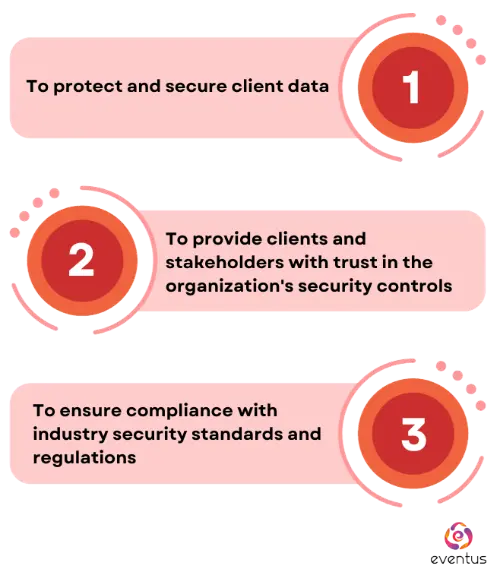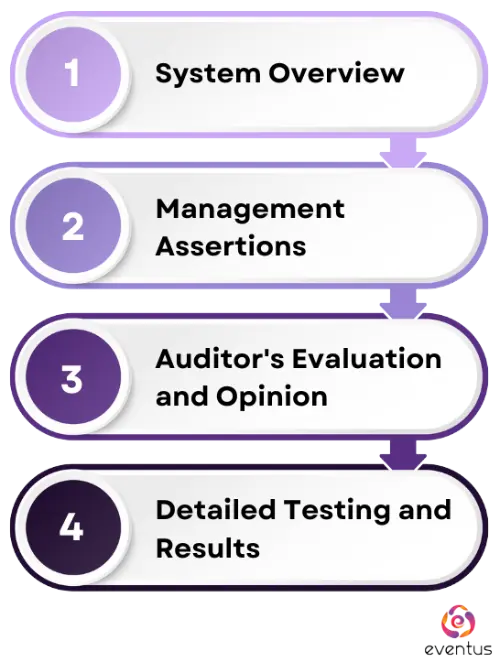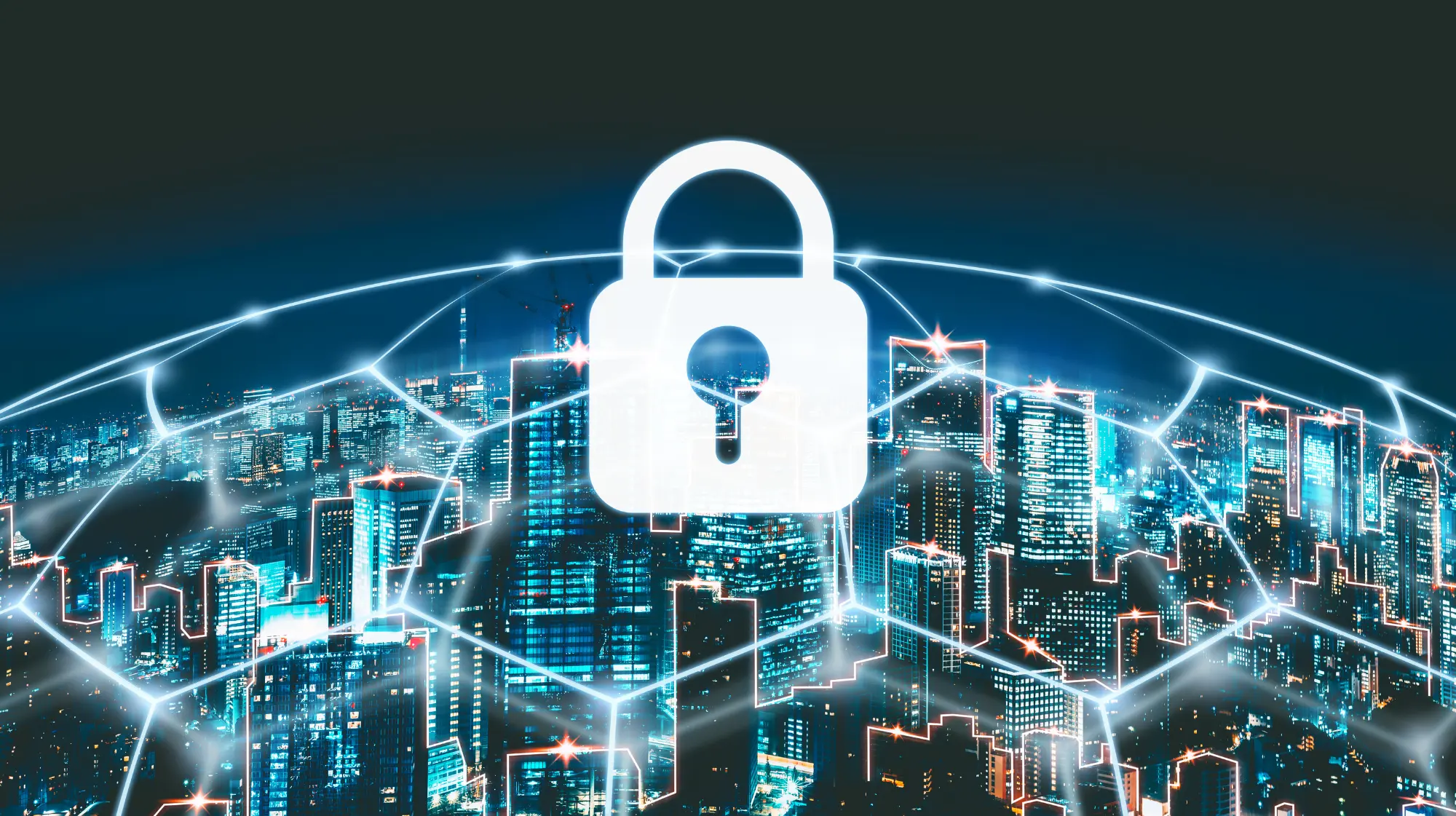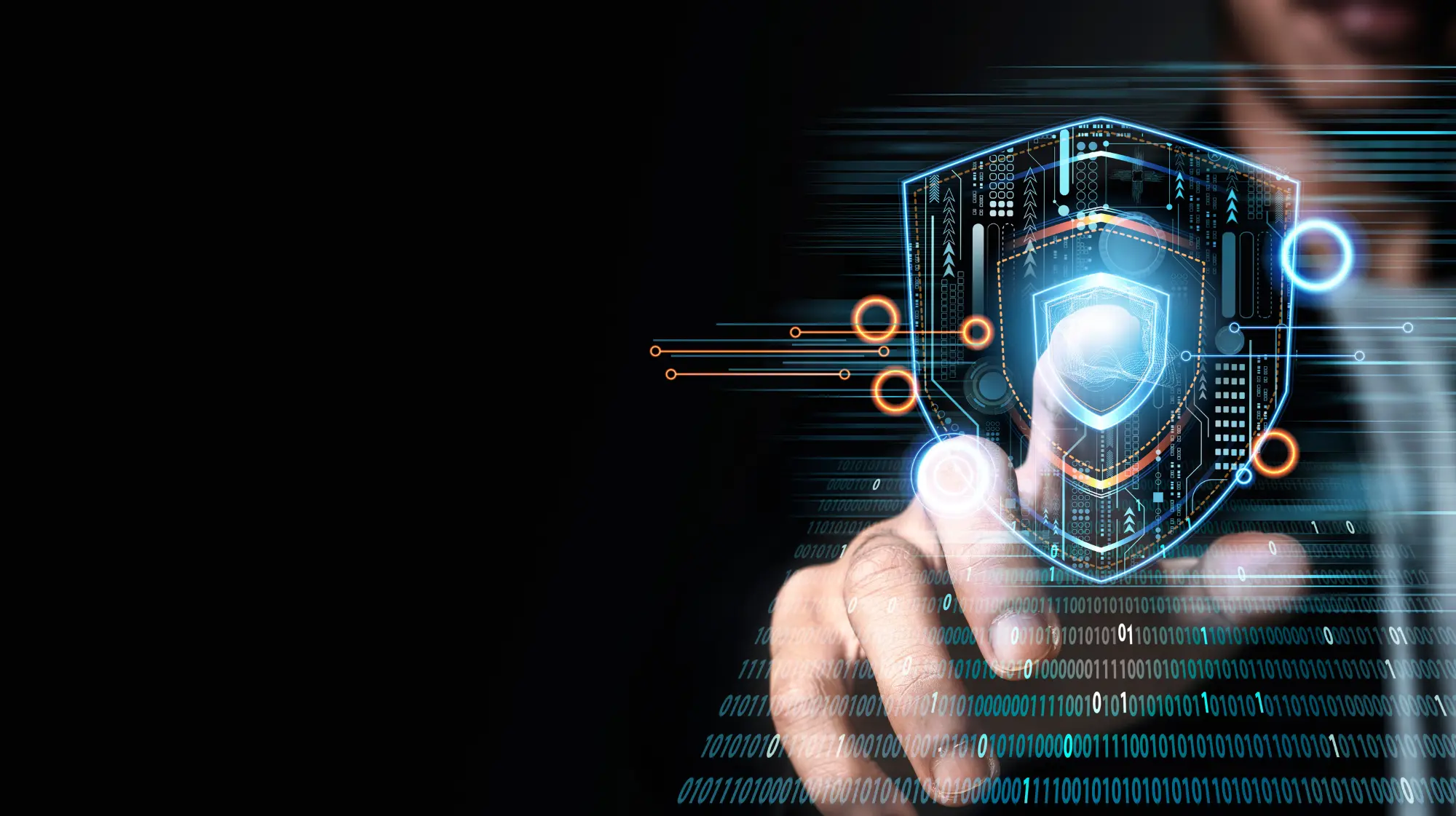In today's cybersecurity environment, ensuring the safety and confidentiality of customer data is paramount. Organizations seek robust frameworks to safeguard their data as cyber threats become more sophisticated. Enter SOC2: a comprehensive framework developed by the American Institute of Certified Public Accountants (AICPA) to meet the SOC 2 requirements, representing a gold standard in data defense. This article delves deep into the intricacies of SOC 2, from understanding its core principles to achieving certification and even selecting the right SOC auditors. Get the knowledge needed to ensure your organization's processes alignsoc with the best data protection and security practices.
Table of Contents
What is SOC 2?
SOC 2, which stands for System and Organization Controls 2, is a compliance framework for auditing and reporting on controls at service organizations that store, process, or transmit customer data. It is vastly different from SOC 1, which is primarily related to financial reporting and is one of three types of SOC reports. The AICPA developed and designed it to assess and ensure the security, availability, processing integrity, confidentiality, and privacy of customer data. These are termed the five trust service criteria (TSC).
SOC 2 reports focus on a service organization's information and data protection controls, specifically when dealing with customer data in environments like the cloud.
What is the importance of SOC 2:
- SOC ii compliance ensures that service providers securely manage data to protect both the interests of their organization and the privacy of their clients.
- Given the rise in data breaches and security incidents, an organization that needs a SOC 2 audit showcases its commitment to data privacy and best practices in information security.
Core Objectives:
- To protect and secure client data.
- To provide clients and stakeholders with trust in the organization's security controls.
- To ensure compliance with industry security standards and regulations.
What Does SOC 2 Mean in Security?
SOC 2 in security signifies relevance in cybersecurity, importance in vendor assessments, and a focus on protecting sensitive data through adherence to trust service principles.
Relevance in Cybersecurity:
- The SOC 2 standard, though a voluntary compliance standard, is regarded as crucial for tech and cloud companies to guarantee they implement strict security measures.
- It deals with the operating effectiveness of the systems and controls set up to protect user data.
Importance in Vendor Assessments:
- Organizations often require their vendors to achieve SOC 2 compliance, ensuring that the third parties they are dealing with have proper security practices in place.
- It reduces the risk of outsourcing services or storing client data in the cloud.
Protecting Sensitive Data:
- SOC 2 compliance may indicate that organizations possess security policies and procedures designed to protect sensitive client data
- The report provides assurance against unauthorized access, breaches, and other security events.
What does SOC 2 Compliance involve?
Being SOC 2 compliant entails adhering to regulations that prove a company's dedication to safeguarding client data. The process involves following specific steps and criteria to attain and uphold this crucial compliance standard.
Regulatory Requirements:
- Compliance is not a mandatory requirement by law but is presumed to be an industry best practice for service providers, especially those that store client data in the cloud.
- Developed by the AICPA, it focuses on a service organization's adherence to trust service criteria such as security, availability, and confidentiality.
Importance of Becoming SOC 2 Compliant:
- Compliance ensures a company has robust security measures to safeguard sensitive data against unauthorized access.
- Demonstrates a commitment to maintaining security, confidentiality, and integrity of clients' sensitive information.
- It boosts trust with stakeholders and clients, demonstrating that it follows best practices in data defense and information security.
Steps to Achieve Compliance:
- Understand the TSC relevant to your business.
- Perform a risk assessment to identify potential vulnerabilities.
- Implement necessary security measures and security policies.
- Undergo a SOC2 audit by a certified public accountant (CPA) to validate your controls.
- Continually monitor and update controls to maintain compliance on an ongoing basis.
SOC 2 Type 1 vs SOC 2 Type 2 reports
- Point of Time vs. Period of Time: The SOC 2 Type 1 report assesses the design of controls at a specific point in time, whereas the SOC 2 Type 2 report evaluates the effectiveness of these controls over typically six to twelve months.
- Design of Controls vs. Operational Effectiveness: Type 1 focuses on the design of controls to meet the Trust Services Criteria. Type 2 goes a step further by testing the operational effectiveness of these controls over time.
- Audience and Purpose: Type 1 reports are often used for assessing the adequacy of controls at a specific time for new services or systems, whereas Type 2 reports are more comprehensive, assuring over a period, and are often required by established clients or regulators.
- Audit Scope and Effort: The audit for a Type 1 report is generally quicker and less resource-intensive compared to a Type 2 audit, which requires ongoing monitoring and more extensive evidence collection over the audit period.
Which Type is Right for Your Organization?
Choosing between SOC 2 Type 1 and Type 2 depends on an organization's stage and compliance objectives. For newer companies or those deploying fresh systems, a SOC 2 Type 1 report is ideal as it validates the design of controls at a specific point in time, which is beneficial for demonstrating initial compliance.
In contrast, established businesses or those in regulated industries should consider a SOC 2 Type 2 report. This report provides a more thorough assurance by evaluating the operational effectiveness of controls over a period of time, typically necessary for satisfying ongoing client or regulatory requirements. The decision should align with the organization's maturity, customer demands, and readiness for the audit's scope and duration.
What are SOC 2 Audit Requirements?
SOC 2 audit requirements include comprehensive pre-audit preparations, submission of required documentation, and adherence to critical stages of the SOC 2 audit process, which assesses the effectiveness of a company's controls related to security, availability, processing integrity, confidentiality, and privacy.
Pre-audit Preparations:
- Conduct a readiness assessment to determine gaps.
- Engage stakeholders and educate teams on SOC 2 requirements.
- Ensure all preventive policies and procedures are documented and up-to-date.
Required Documentation:
- Detailed information on internal controls.
- Risk assessment documentation.
- Security mechanisms and procedures.
- Evidence of monitoring and managing security incidents.
A SOC service provider can offer tailored solutions that ensure your company adheres to the rigorous standards of SOC 2 compliance, providing peace of mind through continuous security monitoring and expert data protection.
Key Stages of the SOC 2 Audit Process:
- Selection of a CPA or auditor.
- Evidence collection and validation.
- Audit report generation, highlighting areas of non-compliance and effectiveness of controls.
- SOC 2 attestation and provision of recommendations.
Explain SOC 2 Security Controls
Delving deep into the architecture of control design, let’s uncover the essence of implementing robust security measures and the vital role of testing and verification.
Control Design:
- Designing controls that align with the SOC 2 trust service criteria to safeguard the client database.
- Ensuring that the service organization tailors the safeguards to the specific threats and vulnerabilities it faces.
Control Implementation:
- Includes implementing security protocols using industry best practices.
- Incorporates employing the latest information security technologies and techniques to ensure robust protection against unauthorized entry.
Control Testing and Verification:
- Regularly testing the controls to validate their operating effectiveness.
- Employing third-party experts for unbiased verification of the implemented controls.
What is SOC 2 Certification?
SOC 2 (Service Organization Control 2) certification is a framework for managing data security that focuses on five "Trust Service Principles" for service organizations, particularly those handling customer data in the cloud. SOC 2 certification, created by the American Institute of CPAs (AICPA), represents an ongoing commitment to uphold stringent standards in information security and privacy rather than being a one-time accomplishment.
The Five Trust Services Principles of SOC 2
The Trust Service Principles form the core of SOC 2 certification, focusing on specific information security and data management aspects.
- Security: This principle mainly focuses on safeguarding information and systems against unauthorized access, theft, or damage. It encompasses the measures to prevent unauthorized users from accessing data and safeguards against malicious software or attacks. Security incorporates physical security of the premises, network and application firewalls, intrusion detection systems, and access control mechanisms to ensure that only authorized personnel can access sensitive information.
- Availability: This principle relates to the accessibility of the system, products, or services as stipulated by a contract or service level agreement (SLA). It doesn’t strictly relate to system functionality but focuses on ensuring that systems are operational and available for use as promised. Performance monitoring, disaster recovery, and incident handling are critical in meeting this principle. It’s particularly relevant for organizations that offer online services where uptime is crucial.
- Processing Integrity: This principle ensures that system processing is complete, accurate, timely, and authorized. It addresses whether or not a system achieves its purpose (i.e., delivers the right data at the right time at the right cost). For example, processing integrity in a financial service would mean transactions are processed accurately and promptly. This principle involves quality assurance processes and procedures to detect and correct processing errors.
- Confidentiality: The confidentiality principle focuses on protecting data deemed confidential from unauthorized disclosure. This principle is essential for organizations that handle sensitive data such as intellectual property, business plans, internal price lists, and other confidential information. Measures to uphold this principle include encryption, access controls, and network and application firewalls to safeguard information deemed confidential.
- Privacy: This principle addresses the system’s collection, use, retention, disclosure, and disposal of personal information in conformity with the organization’s privacy notice, as well as with criteria outlined in the AICPA’s Generally Accepted Privacy Principles (GAPP). This principle is particularly relevant for organizations that handle personal information, such as healthcare providers, financial services, and online retailers. Compliance involves adhering to privacy policies, ensuring proper consent for the collection of personal information, and implementing measures to protect the handling and sharing of this data.
Organizations seeking SOC 2 certification choose which of these principles apply to their business and are audited accordingly.
SOC 2 Readiness Checklist
By evaluating your organization's current compliance stance and maintaining meticulous documentation, this checklist ensures you are fully prepared for the audit.
Preliminary Assessment:
- Evaluating the organization's current state in terms of SOC 2 compliance.
- Identifying potential vulnerabilities and weaknesses.
Documentation Requirements:
- Preparing a comprehensive documentation of all Protective controls and safeguards.
- Documenting incidents and mitigation steps taken.
Control Assessment:
- Ensuring that all controls are in place and effective.
- Conducting internal assessments before the official SOC2 audit.
Who can Perform a SOC Audit?
Only an independent CPA (Certified Public Accountant) or a firm of CPAs can perform a SOC 2 audit. The auditors must be licensed and possess the necessary information security and systems expertise. They are responsible for evaluating how much a service organization complies with the relevant Trust Service Principles and Criteria.
Who Needs a SOC 2 Report?
A SOC 2 report is essential for various service organizations, particularly those handling or managing data on behalf of others. Key sectors that typically require a SOC 2 report include:
- Cloud Service Providers: These companies offer cloud computing, storage, and hosting services. They are responsible for protecting and managing significant amounts of client data, making SOC 2 compliance crucial to ensure data security and build customer trust.
- Software as a Service (SaaS) Companies: Businesses that provide software applications over the Internet fall into this category. As they often handle sensitive user data, a SOC 2 report is vital to demonstrate their commitment to security and privacy standards.
- Data Processing Firms: Organisations, including payment processors, manage and process client data. Given the sensitive nature of financial and personal data, SOC 2 reports are critical to assure clients of the security and integrity of their processing systems.
- IT Managed Service Providers: Companies offering managed IT services, such as network management, data center operations, and other support services, require SOC 2 reports. The reports ensure they adhere to high security and operational reliability standards in managing their clients' IT infrastructure.
- Healthcare Service Providers: These organizations deal with electronic personal health information, making SOC 2 compliance essential. It helps with health privacy laws compliance and assures patients and partners of the secure handling of sensitive health data.
- Financial Services: Firms in the financial sector, including those handling transactions, reporting, and managing financial data, need SOC 2 reports. It assures clients and regulatory bodies of their commitment to maintaining secure and reliable financial data management systems.
What is the purpose of a SOC 2 report?
- Assurance on Internal Controls: Offers in-depth assurance regarding the effectiveness and adequacy of internal controls focused on data security and privacy, ensuring that these controls are designed and functioning as intended.
- Demonstrating Compliance to Stakeholders: Crucial for showing stakeholders - including audit committees, compliance and security teams, senior leadership, and customers - that the organization is committed to and aligned with industry best practices in securing and managing data.
What are the benefits of a SOC 2 report?
- Boosting Customer Trust: Enhances customer confidence by transparently demonstrating the organization’s dedication to maintaining robust data security practices.
- Alignment with Industry Standards: Facilitates adherence to industry standards and regulations, portraying the organization as trustworthy and compliant, particularly appealing to potential vendors and partners.
- Mitigation of Data Breach Risks: By implementing the security measures recommended in the SOC 2 framework, organizations can significantly lower the risk of experiencing damaging data breaches, thereby protecting their assets and customers' sensitive information.
What does a SOC 2 report contain?
A SOC 2 report, structured according to AICPA guidelines, typically includes several critical components, each serving a unique purpose:
- System Overview: The overview comprehensively describes the organization's service delivery systems, encompassing their operational procedures and the security measures implemented.
- Management Assertions: The organization's management provides detailed statements asserting the effectiveness of its systems and controls over a specified period. The statements include affirmations about the design and operational effectiveness of the controls relating to the Trust Services Criteria.
- Auditor's Evaluation and Opinion: The independent auditor provides their professional judgment regarding the accuracy of management's assertions and the suitability of the control design and operation.
- Detailed Testing and Results: A crucial part of the report involves outlining the specific tests conducted by the auditor on the organization's controls, along with the outcomes of these tests, thereby offering an evidence-based evaluation of compliance.










